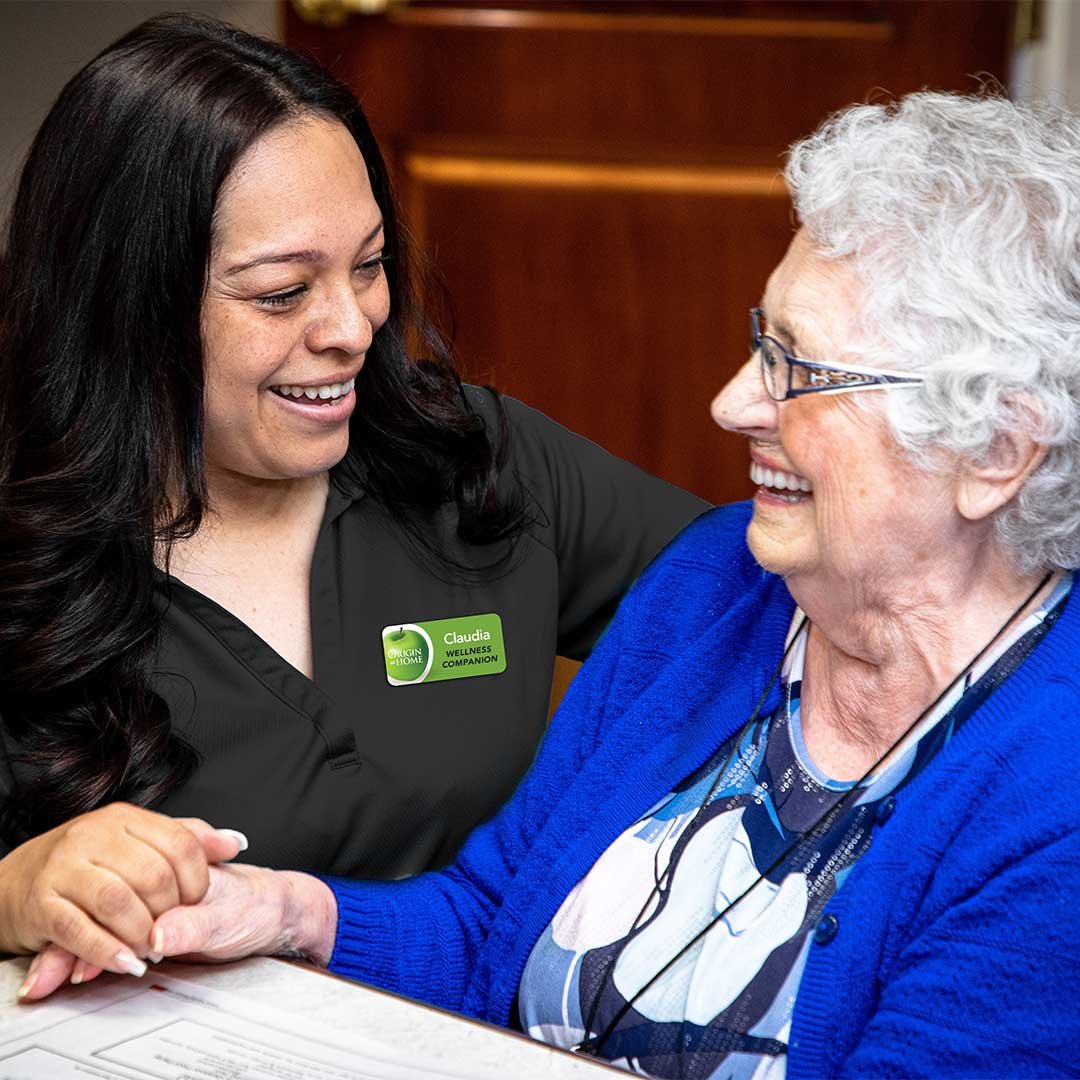As we age, it can be easy to become more isolated and less social. However, maintaining an active social life is important for seniors' overall health and well-being. In this article, we'll discuss the benefits of an active social life for seniors, why it's so important, and how Companions can help improve quality of life.

1. Socialization Promotes Mental Health
One of the main reasons it's so important for seniors to keep an active social life is that socialization promotes mental health. Studies have shown that social isolation is associated with a higher risk of depression and anxiety, while socializing can improve cognitive function and overall happiness. Connection with others can help seniors feel connected to their community, which can reduce feelings of loneliness, helplessness, and increase independence. Origin at Home Companions services are carefully designed to promote meaningful connection and socialization.
According to a study published in the Journal of Gerontology, social isolation is a significant risk factor for cognitive decline in older adults. Seniors who maintain an active social life may be better able to maintain cognitive function as they age. Origin Companions focus on encouraging and engaging seniors in activities around the home, and in the community.
2. Socialization Can Improve Physical Health
An active social life is a wonderful asset that not only uplifts our mental well-being but also brings a multitude of benefits to seniors' physical health. Regular social interactions have the power to lower the chances of cardiovascular disease, stroke, and other chronic conditions. The positive influence of socialization works wonders in reducing stress levels, leading to favorable effects on blood pressure and various physiological factors.
Fascinating research published in the esteemed American Journal of Epidemiology reveals that social integration among seniors is directly linked to a decrease in blood pressure. Furthermore, a study in the Journal of Health and Social Behavior has discovered that social support plays a vital role in mitigating inflammation among seniors, thereby reducing the risk of chronic diseases.
Origin Companions understand that establishing and maintaining a strong social life can sometimes be challenging, especially as we grow older. However, there are amazing companionship services available that are specifically designed to help overcome hurdles and create a more vibrant and fulfilling social environment for seniors to be a part of. These services open doors to new friendships, meaningful connections, and joyous experiences that can enhance overall well-being.
3. Socialization Can Provide a Sense of Purpose
As we journey through life, it's natural to wonder about our continued impact on society as we age. However, let's shift our perspective and embrace the uplifting truth: maintaining an active social life can provide seniors with a profound sense of purpose and belonging. Each and every one of us has unique gifts and experiences to share, and by engaging in social activities, volunteering, and participating in community events, seniors can feel a renewed sense of meaning and contribution to their communities. What a beautiful way to enhance their overall well-being!
A study published in the Journal of Applied Gerontology reveals that seniors who actively involve themselves in their communities are more likely to have a strong sense of identity and purpose. This, in turn, has a positive impact on their mental and physical health, leading to a greater sense of well-being. Remember, by embracing an active social life, seniors can not only enjoy the company of others but also reap the incredible physical health benefits that come with it.
Let us celebrate the power of engagement and connection! By embracing an active social life and participating in community activities, seniors can unlock a renewed sense of purpose and belonging. These activities can be even more enjoyable when shared with a Companion who supports and encourages them along the way. Together, let's create a life that is not only fulfilled but also leaves a lasting impact on the world around us. Learn more about Origin at Home here.
Sources:
- Wilson, R. S., Krueger, K. R., Arnold, S. E., Schneider, J. A., Kelly, J. F., Barnes, L. L., & Bennett, D. A. (2007). Loneliness and risk of Alzheimer disease. Archives of General Psychiatry, 64(2), 234–240. doi: 10.1001/archpsyc.64.2.234.
- Holt-Lunstad, J., Smith, T. B., Baker, M., Harris, T., & Stephenson, D. (2015). Loneliness and social isolation as risk factors for mortality: A meta-analytic review. Perspectives on Psychological Science, 10(2), 227–237. doi: 10.1177/1745691614568352.
- Cacioppo, J. T., Hawkley, L. C., Thisted, R. A., & Ernst

